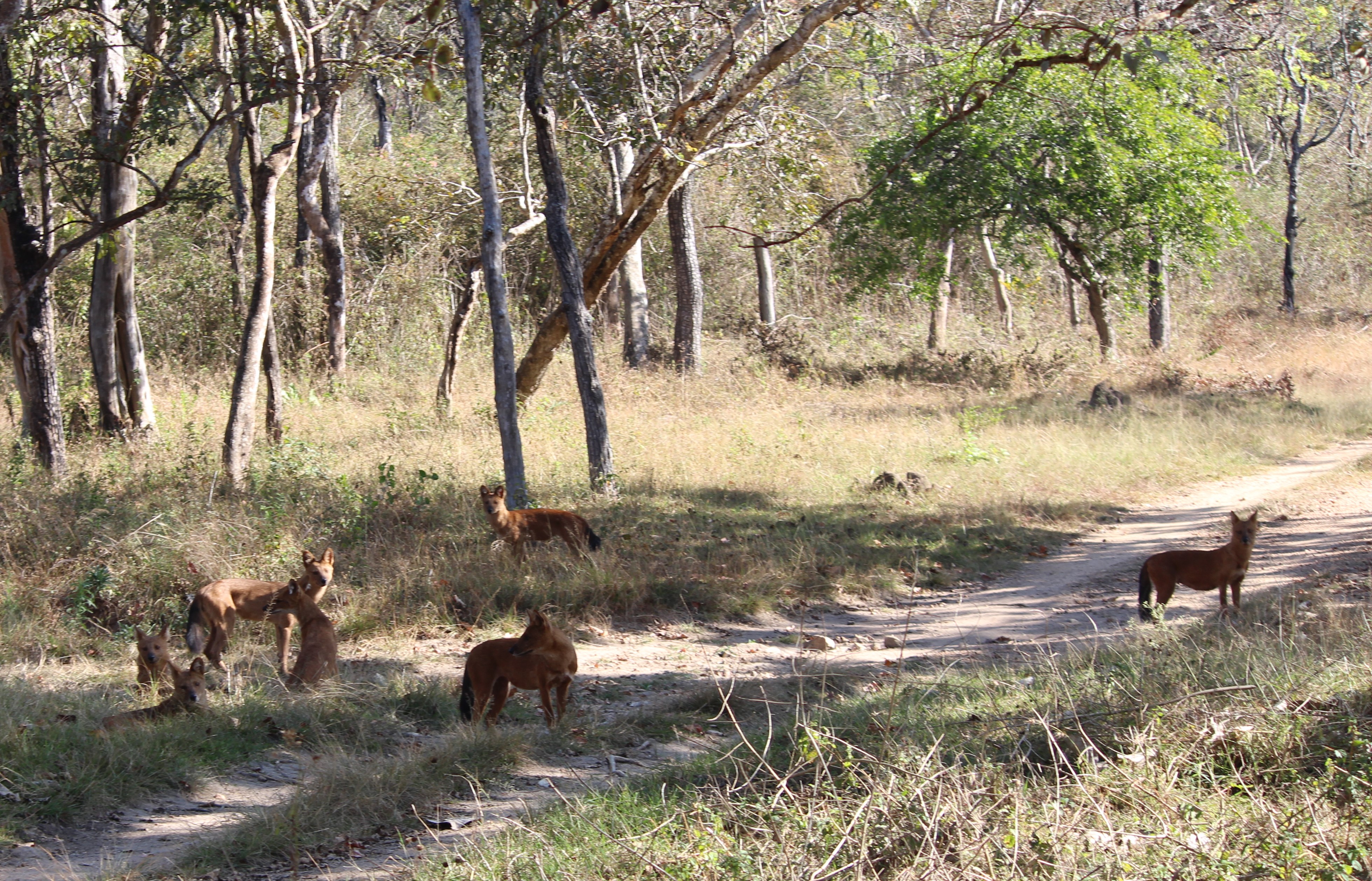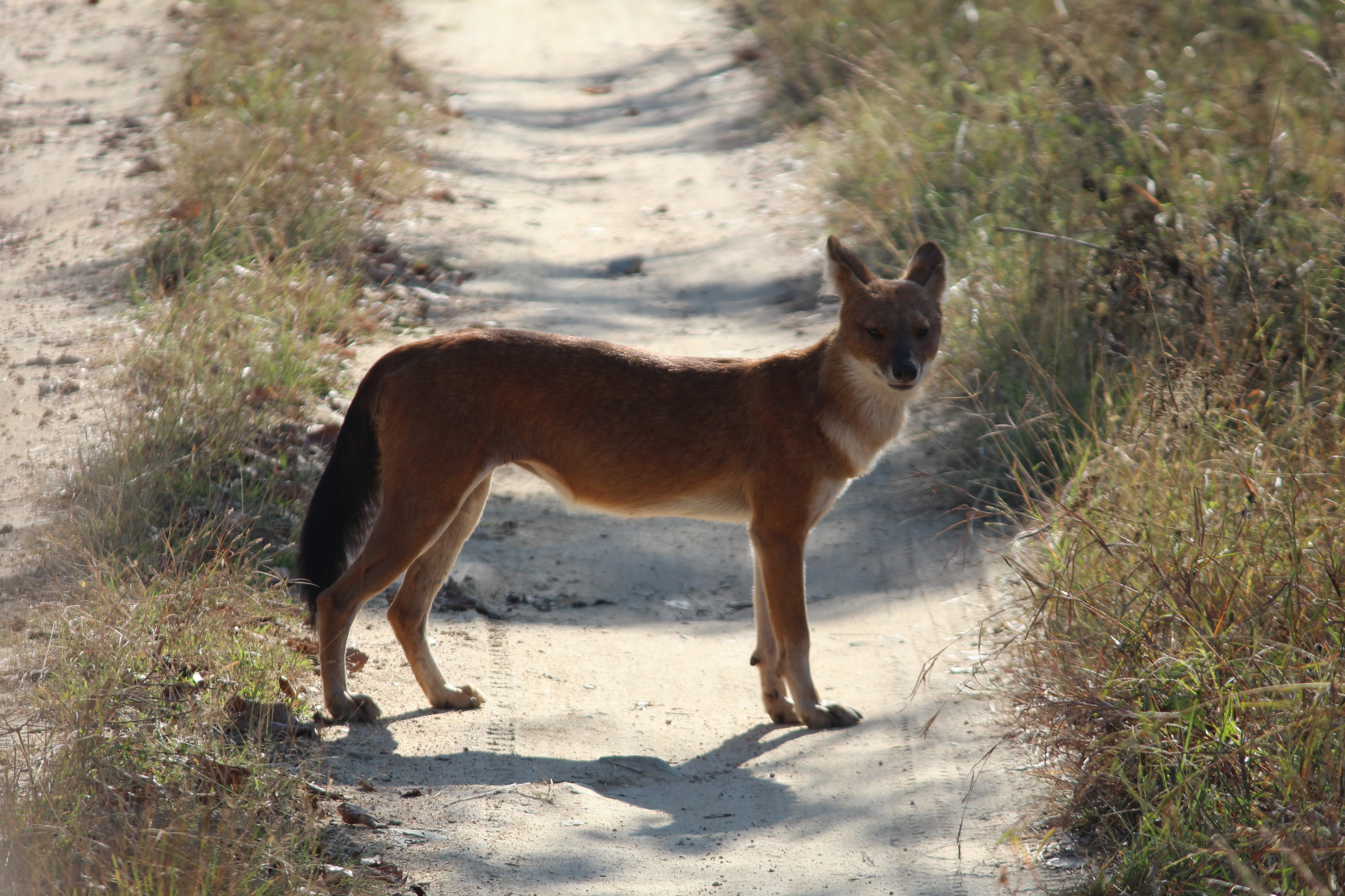Apart from the carnivorous tigers and leopards, and the hundreds of elephants, Bandipur has many other animals that are necessary for survival of the forest ecosystem, and its quite exciting to see them in their natural habitat.
Read Bandipur diaries 1 and Bandipur diaries 2
On entering the forest, we’re usually welcomed by herds of spotted deer. They’re visibly used to hearing the roaring safari vehicles. Though they get alerted and stay at a distance, they mostly hang around grazing or watching us, while we admire their grace and elegant antlers.
We were told that this is the time of the year when the deer shed their antlers and new ones start growing.
Seldom do we see solitary deer. On one of the mornings, as we were exiting the safari area, we heard a young deer’s warning calls and then it emerged from behind the foliage. It continued to make a noise for a while, and we waited to see if any of the predators were around. But no.
The Indian bison or Gaur is the largest of the wild cattle species in our Indian forests. They’re prize kill for the carnivores and just one of them can feed a whole tiger family for several days. The species is listed as “Vulnerable” in the ICUN Red List.
Over the many trips we have made to Bandipur, we always saw the Gaur in the distance, but this time we saw them a few feet from our vehicle.
The Wild dog or Dhole completes the trio of big predators in Bandipur. We were on our last safari and on the way out of the forest when we came upon a pack of eleven wild dogs, relaxing in the sun that was just warming up a cold morning. Needless to say, they were disturbed by the appearance of the noisy Bolero and started moving away. Some of them stopped to check us out, but as our vehicle tracked them, they scattered themselves and gradually disappeared into the shrubs that lined the road.
Bandipur is home to four species of deer – Spotted, Sambar, Mouse and Barking. Apart from the common Spotted deer, the Sambar is quite frequently sighted, and is said to constitute about 60% of a tiger’s diet. The Mouse deer and Barking deer are rarer sightings in our experience.
The female Sambars do not have antlers, but both males and females can be seen with gory looking wounds on their front necks. We thought they’d been in some sort of fights but read that these red sore spots are a natural phenomenon in sambar. The spot is located down the throat surrounded by a hairless area – in adult males in rut and pregnant or lactating females, and is supposed to be caused by glandular changes.
One of the cutest scenes we saw in the forest was of young wild boars with their parents. Four ‘piglets’ following their mother while dad watched on (not in the pictures).
When driving through the forest, the langurs often go unnoticed until we see them jumping from tree to tree. They’re willing posers, when not looking for food.
On our last trip in March 2022, we’d seen a huge Monitor lizard, not so camouflaged, holding onto a tree trunk, and a couple of Malabar squirrels high on the trees. Also Sloth bears whom we couldn’t photograph.
At the JLR campus, there are notices telling us not to feed the monkeys. They’re fairly common around and interesting to watch. On one side, there was a mom grooming her young one. On the other side we saw two little ones wrestling with each other, and their mom had to intervene to split them up.


















